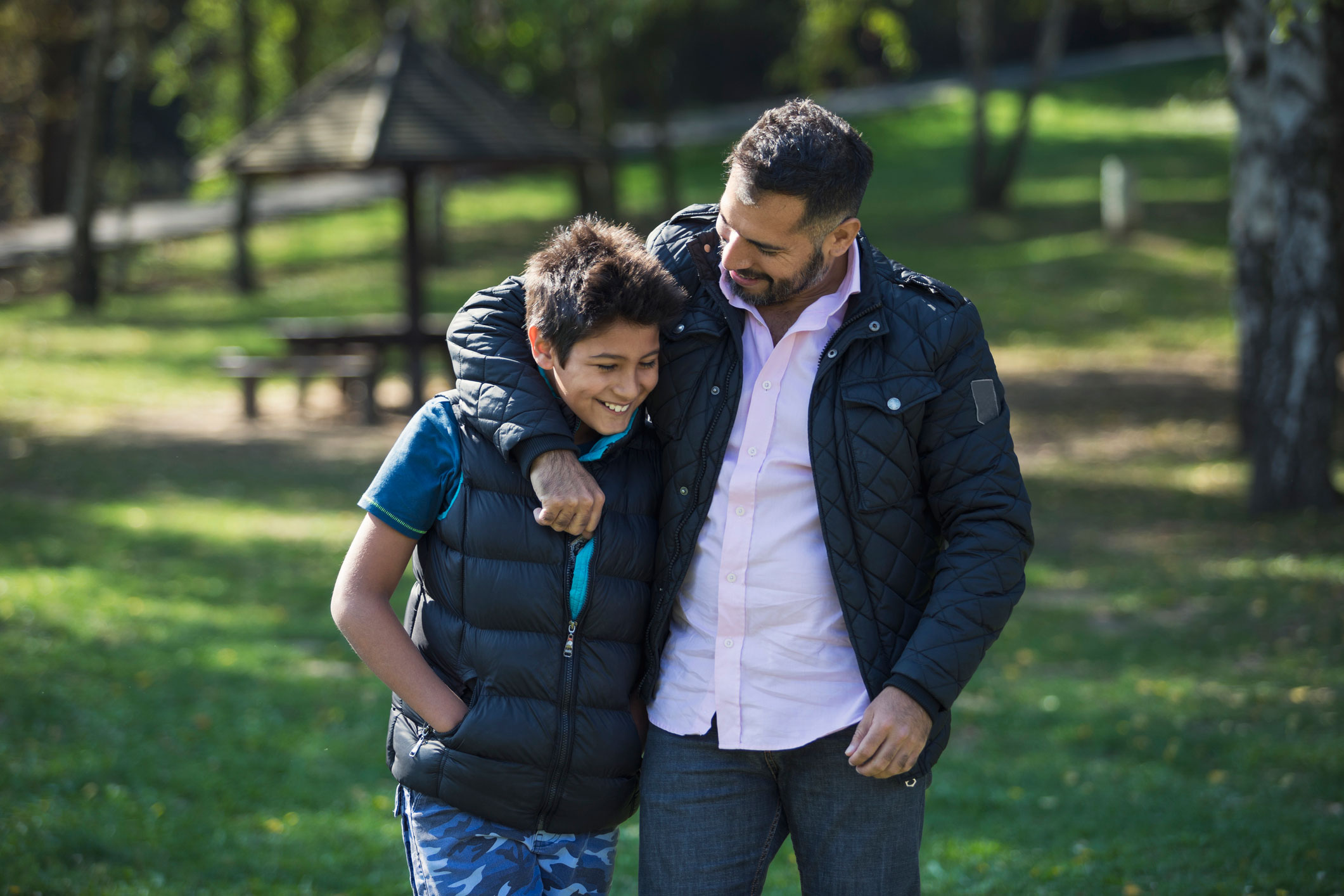As parents, we want the best for our children – limitless opportunities to pursue and enjoy a happy life – but, in reality, much of our hovering and fretting does them more harm than good.
Dr. Eli Leibowitz of the Yale Child Study Center presented “The Role of Parents in Childhood Anxiety” as part of a recent Grand Rounds educational session for providers at the Institute of Living in Hartford. His assessment?
“We need to give children the opportunity to learn to cope.”
Noting that research supports direct connections between parenting styles and a host of childhood anxiety disorders – phobias, panic, separation anxiety, obsessive compulsive disorder and social anxiety – Dr. Leibowitz said there is also biological evidence that parental involvement affects a child’s behavior.
One study used functional MRIs to scan the brains of children twice – once when their mother was with them and once when they were alone – and found a “dramatic difference” in activity in the amygdala, the portion of the brain that regulates emotions.
“The children most affected by their mom’s presence was found to respond most strongly to the level of parent accommodation,” he said.
Accommodation, he went on, is described as ways the parent reacts and enables the child’s anxiety. Childhood anxiety, he said, is “inherently a group response” because the anxious child will cry and cling to a parent, triggering an accommodating response such as:
- Answering repeated questions.
- Sleeping near the child.
- Maintaining a rigid schedule.
- Answering questions for them.
“I use the metaphor of a minefield,” Dr. Leibowitz said. “How do you behave in a minefield? You take as few steps as possible. Anxious children will forego any number of potentially positive experiences to avoid a potentially negative experience.
“In a minefield, you will also step where you’ve already stepped before because it’s safe. Children with anxiety tend to be adverse to change.”
Instead of allowing children to skip a social activity because they are anxious they won’t fit in or have fun, he suggested a more supportive, encouraging approach outlined in the technique SPACE (Supportive Parenting for Anxious Childhood Emotions).
“More supportive responses to the child’s anxiety conveys an acknowledgement and acceptance of the anxiety but encourages the child to handle it,” Dr. Leibowitz said. “Say something like, ‘It is scary, but I know you can cope.’”
He also suggested the following steps, per the SPACE practice, for addressing a child’s anxiety:
- Chart the way you accommodate the child so you can target an area to work on.
- Plan and implement ways you can address your behavior.
- Provide tools for coping with the child’s difficult or negative responses. The child will likely get upset or angry, make threats and accuse you of not loving them.
“Encouraging a parent not to accommodate is like encouraging a child not to be anxious,” he said. “Parents just need to look at the situation through an interpersonal lens. Instead of changing your life to accommodate the child, try changing your responses instead.”
For more information about how the Institute of Living can help for children with anxiety, click here.

